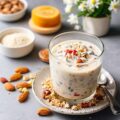Understanding the Dairy and Acne Connection
Acne is a common skin condition that affects millions of people worldwide. While there are many factors that can contribute to acne, recent research has suggested a potential link between dairy consumption and acne breakouts. This article will explore the dairy and acne connection with compassion and a focus on overall wellbeing, providing you with the information you need to make informed choices about your diet and skincare routine.
The Science Behind Dairy and Acne
Several studies have investigated the relationship between dairy products and acne. While the exact mechanisms are not fully understood, there are a few theories:
- Hormones in milk: Dairy products contain hormones that may stimulate oil production and inflammation in the skin.
- Insulin response: Milk can cause a spike in insulin levels, which may lead to increased acne-causing hormones.
- Whey protein: Found in milk, whey protein has been linked to acne in some studies.
It’s important to note that everyone’s skin is different, and what triggers acne in one person may not affect another. The dairy-acne connection is not universal, but it may be worth exploring if you struggle with persistent acne.
Compassionate Approaches to Skin Health
If you’re concerned about the potential link between dairy and acne, there are several gentle and compassionate approaches you can take:
- Keep a food diary: Track your dairy intake and any changes in your skin to identify patterns.
- Gradual reduction: If you choose to reduce dairy, do so slowly to allow your body to adjust.
- Explore alternatives: Try plant-based milk options like almond, oat, or coconut milk.
- Focus on overall nutrition: Ensure you’re getting essential nutrients from other sources if you reduce dairy.
- Practice self-love: Remember that your worth is not determined by your skin’s appearance.
Holistic Skin Care Beyond Diet
While diet can play a role in skin health, it’s essential to take a holistic approach to caring for your skin:
- Develop a gentle skincare routine with products suitable for your skin type.
- Stay hydrated by drinking plenty of water throughout the day.
- Manage stress through meditation, yoga, or other relaxation techniques.
- Get adequate sleep to allow your skin time to repair and regenerate.
- Protect your skin from sun damage by using sunscreen daily.
Embracing Your Skin Journey
Dealing with acne can be challenging, but it’s important to approach your skin health with kindness and patience. Remember that clear skin doesn’t define your beauty or worth. Focus on nurturing your overall health and wellbeing, and celebrate the uniqueness of your skin, whatever its condition.
If you’re considering making changes to your diet or skincare routine, it’s always a good idea to consult with a healthcare professional or dermatologist. They can provide personalized advice and support tailored to your individual needs.
FAQ: Dairy and Acne
1. Does all dairy cause acne?
Not necessarily. Different dairy products may affect individuals differently. Some people may find that certain types of dairy, like skim milk, are more problematic than others.
2. How long after cutting out dairy might I see improvements in my skin?
If dairy is a trigger for your acne, you may notice improvements within a few weeks to a couple of months after reducing or eliminating dairy from your diet. However, results can vary from person to person.
3. Are there any dairy alternatives that are good for skin health?
Plant-based milk alternatives like almond milk, oat milk, and coconut milk are often fortified with vitamins and minerals that can support overall health, including skin health.
4. Can probiotics help with acne if I continue to consume dairy?
Some studies suggest that probiotics may help improve skin health and potentially reduce acne. While they may not counteract the effects of dairy if it’s a trigger for you, probiotics can support overall gut health, which is linked to skin health.
5. Is it necessary to completely eliminate dairy to see improvements in acne?
Not always. Some people may find that reducing their dairy intake or avoiding certain types of dairy products is sufficient to see improvements in their skin. It’s about finding what works best for your individual body and skin.
Conclusion: Nurturing Your Skin and Self
The connection between dairy and acne is a complex topic that continues to be studied. While some people may find that reducing dairy intake helps improve their skin, it’s important to approach any dietary changes with balance and self-compassion. Remember that your skin is just one part of your overall health and wellbeing.
Focus on nurturing your body and mind through a balanced diet, regular exercise, stress management, and a positive self-image. Your skin’s health is interconnected with your overall wellness, so take a holistic approach to caring for yourself. Embrace your unique skin journey with kindness, and remember that true beauty comes from within.









